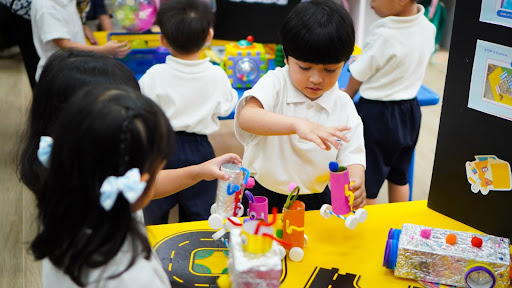The brain is a vital organ influencing our daily lives and general health. It is the body's command center, responsible for managing and organizing all bodily functions, thoughts, emotions, and behaviors.
The brain allows us to be aware of our surroundings, ourselves, and experiences. It enables us to think, reason, learn, and digest information. Memory, attention, problem-solving, and decision-making are all cognitive skills dependent on the brain's normal functioning.
 The brain and memory evolve in a complicated and interconnected manner throughout our lives. The brain changes continuously from infancy to old age, influencing memory development and recall. Here's how the brain and memory interact throughout life:
The brain and memory evolve in a complicated and interconnected manner throughout our lives. The brain changes continuously from infancy to old age, influencing memory development and recall. Here's how the brain and memory interact throughout life:
The relationship between the brain and memory
The brain-memory link is complicated and vital. Memory is the process of encoding, storing, and recalling information in the brain. It requires various brain regions and networks to produce and store memories. Brain memory is the process of encoding, storing, and retrieving information in the brain. The brain can remember and recall prior experiences, knowledge, and abilities. Memory allows us to learn from our experiences, make decisions based on previous events, and interact efficiently with the environment around us. Memory is broadly categorized into several types:1. Memory for Sensations
Sensory memory is the short-term retention of sensory information for a few seconds, such as visual or aural stimulus. It allows us to perceive the world as a continuous experience.2. STM stands for Short-Term Memory
Short-term memory, or working memory, is the temporary storage of knowledge for a short period (from a few seconds to minutes) and immediate usage. It has limited storage capacity and is susceptible to interference and degradation.3. LTM is an abbreviation for Long-Term Memory
Long-term memory is a type of memory that stores information for a long time, ranging from hours to a lifetime. It has a far larger capacity than short-term memory. Long-term memories may last for years if not a lifetime. Individuals differ in their ability to retain and recall knowledge, which can be influenced by age, health, emotional state, and the relevance of the information being processed.How Do The Brain and Memory Grow Up Together?
 The brain and memory evolve in a complicated and interconnected manner throughout our lives. The brain changes continuously from infancy to old age, influencing memory development and recall. Here's how the brain and memory interact throughout life:
The brain and memory evolve in a complicated and interconnected manner throughout our lives. The brain changes continuously from infancy to old age, influencing memory development and recall. Here's how the brain and memory interact throughout life:


